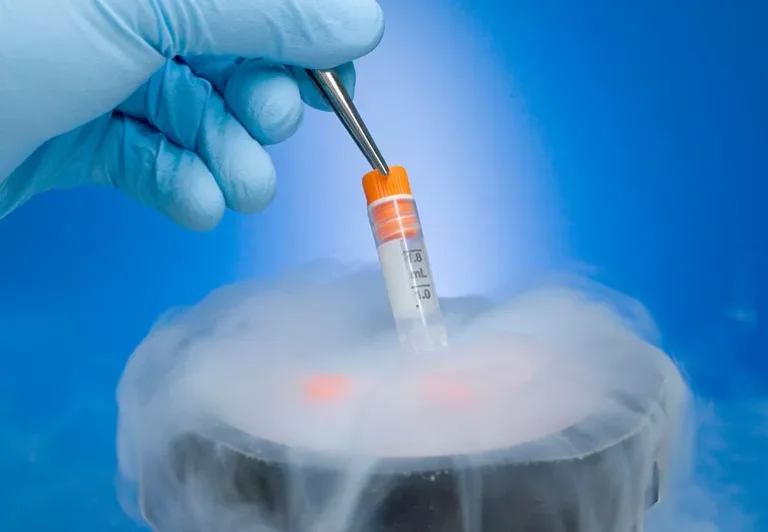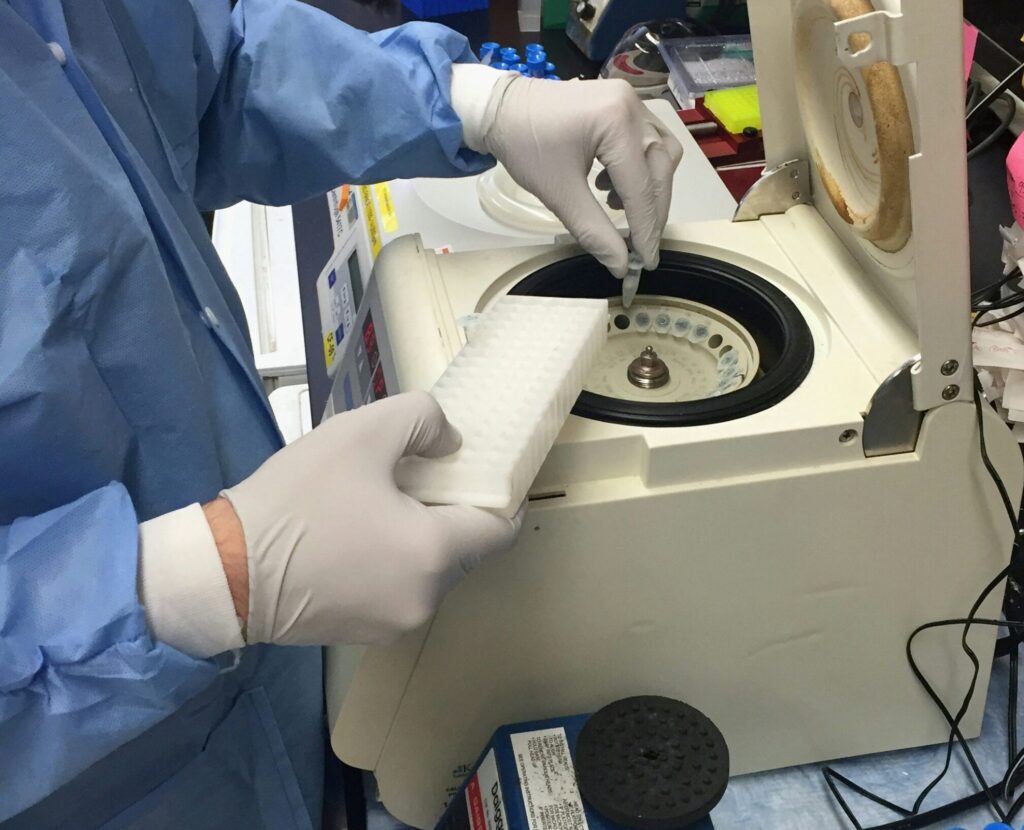
Egg freezing is a medical procedure that allows individuals to preserve their fertility by extracting, freezing, and storing eggs for future use.
Egg Freezing Process:
For the first step in the egg freezing process, you will meet with your doctor to discuss your medical history and review your needs and expectations.
You will give yourself hormone injections which will stimulate your ovaries to produce as many eggs as possible (this number should be reflected in your initial ultrasound evaluation). During this process, you will need to come to our office every few days to receive regular monitoring (ultrasound and blood work) to assess your response to the medications and to see if doses need adjusting.
When your eggs have matured, your doctor will inform you that it is time to trigger the final stage of maturation and start the ovulation process (the release of your eggs) using a different injectable medication. Your eggs will be retrieved as described below. During stimulation you will need to avoid any exercise that is jarring to your pelvis in order to protect your ovaries, which will increase in size as the follicles (cysts that contain the eggs) also grow. You will also need to avoid consuming alcohol, caffeine, some medications, and many herbal supplements. Your doctor or nurse will discuss what medications and levels of activity are safe for you to take during stimulation.
Throughout stimulation you may experience symptoms similar to what you are accustomed to during your regular monthly menstruation including: fatigue, headaches, bloating, breast tenderness, cramping, and mood swings.
Thirty-five hours after the “trigger shot” your doctor will collect your eggs during a minor surgical procedure, which is performed while you are under anesthesia, by placing a needle through the wall of your vagina into the follicles under ultrasound guidance. The day of the procedure, you will need a caregiver to drive you home and to stay with you for the rest of the day as the anesthesia wears off.
For a few days following your retrieval, you may be bloated and experience cramping and mild discomfort. You will be able to return to work within 24-48 hours following your retrieval and you will feel completely “back to normal” following your next period. We ask that you refrain from exercising until after the next period starts.
Once your eggs have been successfully retrieved, all mature eggs will be vitrified (rapidly frozen) and stored securely until you’re ready to use them. The embryologist will let you know how many mature, healthy eggs have been frozen.
The entire process to prepare for egg freezing and to retrieve the eggs generally takes 2-3 weeks for most patients, but it can vary depending on the specifics of your situation.
Where you freeze your eggs matters!
If you’re going to pause your biological clock, do it with a clinic you trust. All fertility clinics are not created equally.
Before choosing an egg freezing clinic, visit the Society for Assisted Reproductive Technology
(SART) website.
All SART member fertility clinics are required to report success rates in a standardized manner and require its members to adhere to strict practice, advertising, and ethical guidelines.
Remember, not all clinics are SART members. therefore, You do not have to adhere to these guidelines!
Since your eventual goal is to have a baby someday, it’s important to make sure that your chosen clinic is not only able to freeze eggs but has reported success after eggs are thawed.

All SART member fertility clinics are required to report success rates in a standardized manner and require its members to adhere to strict practice, advertising, and ethical guidelines.
Remember, not all clinics are SART members. therefore, You do not have to adhere to these guidelines!
Since your eventual goal is to have a baby someday, it’s important to make sure that your chosen clinic is not only able to freeze eggs but has reported success after eggs are thawed.
All SART member fertility clinics are required to report success rates in a standardized manner and require its members to adhere to strict practice, advertising, and ethical guidelines.
Remember, not all clinics are SART members. therefore, You do not have to adhere to these guidelines!
Since your eventual goal is to have a baby someday, it’s important to make sure that your chosen clinic is not only able to freeze eggs but has reported success after eggs are thawed.
